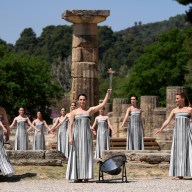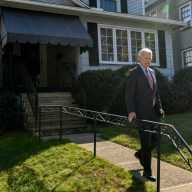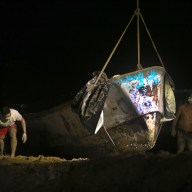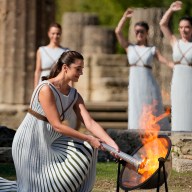In a village in eastern DR Congo, children live in poverty
My year around-the-world taught me a lot of things: never turn down an invitation, bargain hard and always carry a roll of toilet paper.
Most of all, travelling made me globally aware.
I learned about abducted child soldiers in Northern Uganda; the loss of indigenous culture in Tanzania; the construction of the “separation wall,” also dubbed the “apartheid wall,” across the disputed Israeli-Palestinian land.
I learned that the Turkish government has been accused of denying the Armenian genocide; that despite the AIDS epidemic in Africa, humanitarian aid money often doesn’t reach the people it is supposed to help.
I learned about the persecution of the Falun Gong and saw the aftermath of the Rwandan genocide.
Palestinian children walk through military checkpoints.
I may be a McGill University graduate but travel has been the ultimate education. My trip has given me a deeper understanding of what’s going on in the world and where I fit within it.
Now when I read the newspaper, I feel a connection to the stories being covered. I’ve been there, seen the country, met the people and know, first-hand, that “they” are just like us. The similarities between nations and across cultures far outweigh the differences.
With new understanding of world events comes new frustration. In print and TV, important news features seem increasingly overshadowed by celebrity gossip. Why do the extra-marital affairs of Tie Domi get more media attention than rebel violence in DR Congo?
It’s frustrating to see that mainstream media isn’t enlightening, it’s sensationalizing and dumbing-down. After witnessing extreme poverty, homelessness and child labour, I’m finding it awkward adjusting to a society that reads People magazine and watches shows like Deal Or No Deal.
The gap between the haves and have nots is huge. These inequalities get under my skin. I often ask myself: why do some people in this world wear $200 jeans, while others lack clean drinking water and access to health care?
Now that I’m back home, once again sipping from the cup of North American privilege, I try to stay grounded, remember what I saw, who I met and what I learned.













